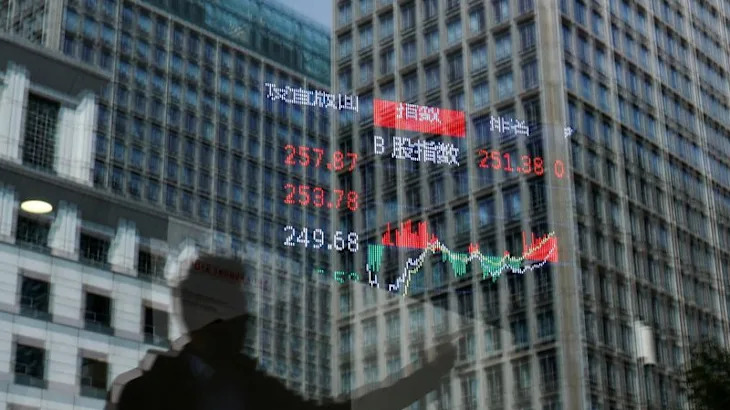
Global credit default spreads narrow as markets rally
SINGAPORE/LONDON (Reuters) - The cost of insuring against sovereign and corporate defaults on European and Asian debt fell on Thursday as investors breathed a sigh of relief at a pause on some of the heaviest U.S. tariffs.
U.S. President Donald Trump on Wednesday stunned markets with an abrupt decision to introduce a 90-day pause on the import tariffs on dozens of countries that were due to come into effect, with the exception of China.
A relief rally swept through global markets, lifting stocks and currencies and introducing some relief into the U.S. Treasury market after an earlier savage selloff on fears over the likely economic damage from Trump's hefty tariffs.
By Thursday in Europe, the iTRAXX Crossover index, which tracks the cost of insuring against default among 75 of Europe's most traded low-rated companies, fell to 376 bps from 427 bps at the close on Wednesday. An index tracking the cost of insuring against default among 125 of the highest-rated entities fell 11 bps to 74 bps, according to S&P Global Markit Intelligence.
Both indexes were still just a whisker below Wednesday's 30-month highs.
Charu Chanana, who is chief investment strategist at Saxo, advised clients to manage their fixed-income exposure.
"Keep duration and credit risk in check amid persistent bond market volatility. And stay flexible: The next 90 days are likely to bring more noise than clarity. Use pull-backs to rebalance, not chase," she said.
In terms of sovereign debt, five-year U.S. sovereign credit default swap spreads contracted by just 1 basis point on the day to 52 bps, as did those on five-year Chinese sovereign CDS, which eased to 74 bps from 75 bps, showing investor nervousness around the intensifying trade war between the world's two largest economies has not abated.
By contrast, five-year CDS spreads for Japan shrank to 21 bps from 25 the day before.
The five-year credit default swap spread on the Markit Itraxx Asia ex-Japan index, comprising sovereign and company debt, fell about 8 basis points to 114 bps, according to S&P Global Market Intelligence.
The moves unwind without fully reversing a recent spike on fears that U.S. tariffs tip the world into recession.
(Reporting by Tom Westbrook in Singapore and Amanda Cooper in London; Editing by Jacqueline Wong and Philippa Fletcher)